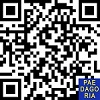BIBLIOMETRIC ANALYSIS TREN PENILAIAN MENGGUNAKAN TEKNOLOGI DIGITAL PADA PEMBELAJARAN IPA
Abstract
Abstrak: Penggunaan teknologi digital dalam penelitian pendidikan tersebar pada hampir semua literatur ilmiah terutama pada artikel yang dipublikasikan pada jurnal internasional bereputasi yang diterbitkan 5 (lima) tahun terakhir sebagai bahan kajian penelitian lebih lanjut. Analisis ini bertujuan untuk mengetahui tren penelitian pada penilaian pendidikan digital atau online pada pembelajaran IPA untuk menyediakan informasi terbaru kepada peneliti tentang perkembangan penilaian pembelajaran IPA menggunakan teknologi digital. Metode analisis menggunakan proses PRISMA yang terdiri dari 4 langkah menggunakan 103 artikel yang terindex scopus dan diterbitkan dari tahun 2017 hingga tahun 2023 melalui pencarian pada database Scopus dan Google Scholar menggunakan Publish or Perish 8, selanjutnya dilakukan analisis bibliometric menggunakan VOSViewer dan analisis tematik. Hasil Analisis menunjukkan bahwa adanya tren peningkatan penggunaan teknologi digital untuk pembelajaran online terutama dalam penilaian pembelajaran IPA menggunakan berbagai platform yang sebagian besar berbasis website dan masih sedikit menggunakan android yang terintegrasi disertai dengan feedback secara realtime. Teknologi digital efektif digunakan untuk untuk meningkatkan penilaian otomatis pada pembelajaran adaptif dan kolaboratif namun feedback hasil penilaian belum banyak ditemuakan dalam analisis artikel ini.. Penelitian lebih lanjut diperlukan tentang penggunaan Teknologi Digital menggunakan platform Android dalam penilaian secara realtime dan terintegrasi disertai umpan balik hasil penilaian untuk perbaikan secara kontinu dalam pembelajaran IPA.
Abstract: Digital technology in educational research has been spread in almost scientific literatures, especially articles published on reputable international journals in the last 5 (five) years as references for further research studies. This analysis aims to find out research trends in digital or online educational assessment in science learning to provide the latest information to researchers about the development of science learning assessment using digital technology. The analytical method used the PRISMA process which consists of 4 steps using 103 articles indexed by Scopus and published from 2017 to 2023 through searches on the Scopus and Google Scholar databases using Publish or Perish 8, then bibliometric analysis was carried out using VOSViewer and thematic analysis. The results of the analysis show that there was an increasing trend in the use of digital technology for online learning, especially in the assessment of science learning using various platforms, most of which are website-based and still use little integrated Android accompanied by real-time feedback. Digital technology is effectively used to increase automatic assessment in adaptive and collaborative learning but not much feedback on assessment results is found in the analysis of this article. Further research is needed on the use of digital technology using the Android platform in real-time and integrated assessments accompanied by feedback on assessment results for continuous improvement in science learningKeywords
Full Text:
PDFReferences
Albano, G., & Dello Iacono, U. (2019). GeoGebra in e-learning environments: A possible integration in mathematics and beyond. Journal of Ambient Intelligence and HumanizedCcomputing, 10(11), 4331–4343. https:// doi. org/ 10. 1007/ s12652- 018- 1111-x
Aljawarneh, S. A. (2020). Reviewing and exploring innovative ubiquitous learning tools in higher education. Journal of Computing in Higher Education, 32(1), 57–73. https:// doi. org/ 10. 1007/ s12528- 019- 09207-0
Altinpulluk, H., & Kesim, M. (2021). A systematic review of the tendencies in the use of learning management systems. The Turkish Online Journal of Distance Education, 22(3), 40–54. https:// doi. org/ 10. 17718/ tojde. 961812
Amoako, P. Y. O., & Osunmakinde, I. O. (2020). Emerging bimodal biometrics authentication for non-venue-based assessments in open distance e-learning (OdeL) environments. International Journal of Technology Enhanced Learning, 12(2), 218–244. https:// doi. org/ 10. 1504/ IJTEL. 2020.
ArchMiller, A., Fieberg, J., Walker, J. D., & Holm, N. (2017). Group peer assessment for summative evaluation in a graduate-level statistics course for ecologists. Assessment and Evaluation in Higher Education, 42(8), 1208–1220. https:// doi. org/ 10. 1080/ 02602 938. 2016. 12432 19
Azevedo, J. M., Oliveira, E. P., & Beites, P. D. (2019). Using learning analytics to evaluate the quality of multiple-choice questions: A perspective with Classical Test Theory and Item Response Theory. The International Journal of Information and Learning Technology, 36(4), 322–341. https:// doi. org/ 10. 1108/ IJILT- 02- 2019- 0023
Babo, R., Babo, L. V., Suhonen, J. T., & Tukiainen, M. (2020). E-assessment with multiple-choice questions: A 5-year study of students’ opinions and experience. Journal of Information Technology Education: Innovations in Practice, 19, 1–29. https:// doi. org/ 10. 28945/ 4491
Babo, R., & Suhonen, J. (2018). E-assessment with multiple choice questions: A qualitative study of teachers’ opinions and experience regarding the new assessment strategy. International Journal of Learning Technology, 13(3), 220–248. https:// doi. org/ 10. 1504/ IJLT. 2018. 095964
Badia, A., Martín, D., & Gómez, M. (2019). Teachers’ perceptions of the use of Moodle activities and their learning impact in secondary education. Technology, Knowledge and Learning, 24(3), 483–499. https:// doi. org/ 10. 1007/ s10758- 018- 9354-3
Cakiroglu, U., Erdogdu, F., Kokoc, M., & Atabay, M. (2017). Student’s preference in online assessment process: Influence on academic performance. The Turkish Online Journal of Distance Education, 18(1), 132–132. https:// doi. org/ 10. 17718/ tojde. 285721
Chang Chan, A.Y.-C., Custer, E. J. F. M., van Leeuwen, M. S., Bleys, R. L. A. W., & ten Cate, O. (2019). Correction to: Does an additional online anatomy course improve performance of medical students on gross anatomy examinations? Medical Science Educator, 29(3), 891–891. https:// doi. org/ 10. 1007/ s40670- 019- 00758-6
Chootongchai, S., & Songkram, N. (2018). Design and development of SECI and Moodle online learning s to enhance thinking and innovation skills for higher education learners. International Journal of Emerging Technologies in Learning, 13(3), 154–172. https:// doi. org/ 10. 3991/ ijet. v13i03. 7991
Christopoulos, A., Pellas, N., & Laakso, M.-J. (2020). A learning analytics theoretical framework for STEM education virtual reality applications. Education Sciences, 10(11), 317. https:// doi. org/ 10. 3390/ educs ci101 10317
Colares, G. S., Dell’Osbel, N., Wiesel, P. G., Oliveira, G. A., Lemos, P. H. Z., da Silva, F. P., Lutterbeck, C. A., Kist, L. T., & Machado, Ê. L. (2020). Floating treatment wetlands: A review and bibliometric analysis. The Science of the Total Environment, 714, 136776–136776. https:// doi. org/ 10. 1016/j. scito tenv. 2020. 136776
Daniels, P., & Iwago, K. (2017). The suitability of cloudbased speech recognition engines for language learning. JALT CALL Journal, 13(3), 229–239.
de Jesus, Â. M. and Silveira, I. F. (2022) ‘A Collaborative Learning Framework for Computational Thinking Development through Game Programming’, Informatics in Education, 21(2), pp. 253–281. doi: 10.15388/infedu.2022.14.
de Souza, M. P., Hoeltz, M., Brittes Benitez, L., Machado, Ê. L., & de Souza Schneider, R. C. (2019). Microalgae and clean technologies: A review. Clean: Soil, Air, Water, 47(11), 1800380. doi: https:// doi. org/ 10. 1002/ clen. 20180 0380.
Divjak, B., & Maretić, M. (2017). Learning analytics for peer-assessment: (Dis) advantages, reliability and implementation. Journal of Information and Organizational Sciences, 41(1), 21–34. https:// doi. org/ 10. 31341/ jios. 41.1.2
Dolezal, D., Posekany, A., Roschger, C., Koppensteiner, G., Motschnig, R., & Pucher, R. (2018). Person-centered learning using peer review method: An evaluation and a concept for student-centered classrooms. International Journal of Engineering Pedagogy, 8(1), 127–147. https:// doi. org/ 10. 3991/ ijep. v8i1. 8099
Fenu, G., Marras, M., & Meles, M. (2017). A learning analytics tool for usability assessment in Moodle environments. Journal of e-Learning and Knowledge Society, 13(3), 23–34. https:// doi. org/ 10. 20368/ 1971- 8829/ 1388
Finogeev, A., Gamidullaeva, L., Bershadsky, A., Fionova, L., Deev, M., & Finogeev, A. (2020). Convergent approach to synthesis of the information learning environment for higher education. Education and Information Technologies, 25(1), 11–30. https:// doi. org/ 10. 1007/ s10639- 019- 09903-5
Gamage, S. H. P. W., Ayres, J. R., Behrend, M. B., & Smith, E. J. (2019). Optimising Moodle quizzes for online assessments. International Journal of STEM Education, 6(1), 1–14. https:// doi. org/ 10. 1186/ s40594- 019- 0181-4
Gamage, S. H. P. W., Ayres, J. R. and Behrend, M. B. (2022) ‘A systematic review on trends in using Moodle for teaching and learning’, International Journal of STEM Education. Springer International Publishing, 9(1). doi: 10.1186/s40594-021-00323-x.
Gaona, J., Reguant, M., Valdivia, I., Vásquez, M., & Sancho-Vinuesa, T. (2018). Feedback by automatic assessment systems used in mathematics homework in the engineering field. Computer Applications in Engineering Education, 26(4), 994–1007. https:// doi. org/ 10. 1002/ cae. 21950
García-Martín, J., & García-Sánchez, J.-N. (2020). The effectiveness of four instructional approaches used in a MOOC promoting personal skills for success in life. Revista De Psicodidáctica (english Ed.), 25(1), 36–44. https:// doi. org/ 10. 1016/j. psicoe.2 019. 08. 001
George-Williams, S., Carroll, M.-R., Ziebell, A., Thompson, C., & Overton, T. (2019). Curtailing marking variation and enhancing feedback in large scale undergraduate chemistry courses through reducing academic judgement: A case study. Assessment and Evaluation in Higher Education,
(6), 881–893. https:// doi. org/ 10. 1080/ 02602 938. 2018. 15458 97
Gray, W. G., Lado, M. J., Zhang, Z., Iskander, M. F., Garcia-Gorrostieta, J. M., LopezLopez, A., & Gonzalez-Lopez, S. (2018). Automatic argument assessment of final project reports of computer engineering students. Computer Applications in Engineering Education, 26(5), 1217–1226. https:// doi. org/ 10. 1002/ cae. 21996
Hempel, B., Kiehlbaugh, K., & Blowers, P. (2020). Scalable and practical teaching practices faculty can deploy to increase retention: A faculty cookbook for increasing student success. Education for Chemical Engineers, 33, 45–65. https:// doi. org/ 10. 1016/j. ece. 2020. 07. 004
Henke, K., Nau, J., Bock, R. N., & Wuttke, H.-D. (2021). A hybrid online laboratory for basic STEM education. In Uskov V.L., Howlett R.J., & J. L.C. (Eds.), Smart Education and e-Learning 2021, 240, 29–39, New York, N. Y., Springer.
Hsiung, W. Y. (2018). The use of e-resources and innovative technology in transforming traditional teaching in chemistry and its impact on learning chemistry. International Journal of Interactive Mobile Technologies, 12(7), 86–96. https:// doi. org/ 10. 3991/ ijim. v12i7. 9666
Hwang, C. S. (2020). Using continuous student feedback to course-correct during COVID-19 for a monmajors chemistry course. Journal of Chemical Education, 97(9), 3400–3405. https:// doi. org/ 10. 1021/ acs. jchem ed. 0c008 08
Jackson, E. A. (2017). Impact of MOODLE platform on the pedagogy of students and staff: Cross-curricular comparison. Education and Information Technologies, 22(1), 177–193. https:// doi. org/ 10. 1007/ s10639- 015- 9438-9
Juhji, J. and Nuangchalerm, P. (2020) ‘Interaction between scientific attitudes and science process skills toward technological pedagogical content knowledge’, Journal for the Education of Gifted Young Scientists, 8(1), pp. 1–16. doi: 10.17478/jegys.600979.XX.
Koneru, I. (2017). Exploring moodle functionality for managing Open Distance Learning e-assessments. The Turkish Online Journal of Distance Education, 18(4), 129–141. https:// doi. org/ 10. 17718/ tojde. 340402
Kouis, D., Kyprianos, K., Ermidou, P., Kaimakis, P., & Koulouris, A. (2020). A framework for assessing LMSs e-courses content type compatibility with learning styles dimensions. Journal of e-Learning and Knowledge Society, 16(2), 73–86. https:// doi. org/ 10. 20368/ 1971- 8829/ 11352 04
Phungsuk, R., Viriyavejakul, C., & Ratanaolarn, T. (2017). Development of a problem-based learning model via a virtual learning environment. Kasetsart jJurnal of Social Sciences, 38(3), 297–306. https:// doi. org/ 10. 1016/j. kjss. 2017. 01. 001
Popovic, N., Popovic, T., Dragovic, I. R., & Cmiljanic, O. (2018). A Moodle-based blended learning solution for physiology education in Montenegro: A case study. Advances in Physiology Education, 42(1), 111–117. https:// doi. org/ 10. 1152/ ADVAN. 00155. 2017
Rachman-Elbaum, S., Stark, A. H., Kachal, J., Johnson, T., & Porat-Katz, B. S. (2017). Online training introduces a novel approach to the Dietetic Care Process documentation. Nutrition & Dietetics, 74(4), 365–371. https:// doi. org/ 10. 1111/ 1747- 0080. 12331
Ramírez-Noriega, A., Juárez-Ramírez, R., Jiménez, S., Inzunza, S., & MartínezRamírez, Y. (2018). Ashur: Evaluation of the relation summary-content without human reference using rouge. Computing and Informatics, 37(2), 509–532. https:// doi. org/ 10. 4149/ cai_ 2018_2_ 509
Ross, R. (2017). MoodleNFC: Integrating smart student ID cards with Moodle for laboratory assessment. Australasian Journal of Engineering Education., 22(2), 73–80. https:// doi. org/ 10. 1080/ 22054 952. 2017. 14145 57
Saleh, M., & Salama, R. M. (2018). Recommendations for building adaptive cognition-based e-learning. International Journal of Advanced Computer Science and Applications, 9(8), 385–393.
Saqr, M., Fors, U., & Tedre, M. (2017). How learning analytics can early predict under-achieving students in a blended medical education course. Medical Teacher, 39(7), 757–767. https:// doi. org/ 10. 1080/ 01421 59X. 2017. 13093 76
Shavelson, R. J. et al. (2019) ‘Assessment of University Students’ Critical Thinking: Next Generation Performance Assessment’, International Journal of Testing. Routledge, 19(4), pp. 337–362. doi: 10.1080/15305058.2018.1543309.
Shkoukani, M. (2019). Explore the major characteristics of learning management systems and their impact on e-learning success. International Journal of Advanced Computer Science and Applications, 10(1), 296–301.
Slee, N. J. D., & Jacobs, M. H. (2017). Trialling the use of Google Apps together with online marking to enhance collaborative learning and provide effective feedback [version 2 peer review: 2 approved with reservations]. F1000 research, 4, 177. doi:https:// doi. org/ 10. 12688/ f1000 resea rch. 6520.2.
Smolyaninova, O., & Bezyzvestnykh, E. (2019). Implementing teachers’ training technologies at a federal university: E-portfolio, digital laboratory, PROLog Module System. International Journal of Online and Biomedical Engineering, 15(4), 69–87. https:// doi. org/ 10. 3991/ ijoe. v15i04. 9288
Tsai, M.-H., & Tang, Y.-C. (2017). Learning attitudes and problem-solving attitudes for blended problem-based learning. Library Hi Tech, 35(4), 615–628. https:// doi. org/ 10. 1108/ LHT- 06- 2017- 0102
Van Eck, N.J., & Waltman, L., 2020. VOSviewer manual. http:// www. vosvi ewer. com/ docum entat ion/ Manual_ VOSvi ewer_1. 6.1. pdf. Accessed 14 July 2020.
Valero, G., & Cárdenas, P. (2017). Formative and summative assessment in veterinary pathology and other courses at a Mexican veterinary college. Journal of Veterinary Medical Education, 44(2), 331–337. https:// doi. org/ 10. 3138/ jvme. 1015- 169R
Villa, V., Motyl, B., Paderno, D., & Baronio, G. (2018). TDEG based framework and tools for innovation in teaching technical drawing: The example of LaMoo project. Computer Applications in Engineering Education, 26(5), 1293–1305. https:// doi. org/ 10. 1002/ cae. 22022
Wang, F. H. (2019). On the relationships between behaviors and achievement in technology-mediated flipped classrooms: A two-phase online behavioral PLS-SEM model. Computers and Education, 142, 103653. https:// doi. org/ 10. 1016/j. compe du. 2019. 103653
Wu, C. H., Liu, C. H. and Huang, Y. M. (2022) ‘The exploration of continuous learning intention in STEAM education through attitude, motivation, and cognitive load’, International Journal of STEM Education. Springer International Publishing, 9(1). doi: 10.1186/s40594-022-00346-y.
Xiao, L. L., & Rahman, S. S. B. A. (2017). Predicting learning styles based on students’ learning behaviour using correlation analysis. Current Science (bangalore), 113(11), 2090–2096. https:// doi. org/ 10. 18520/ cs/ v113/ i11/ 2090- 2096
DOI: https://doi.org/10.31764/paedagoria.v14i3.15928
Refbacks
- There are currently no refbacks.
Copyright (c) 2023 Sudirman Sudirman

This work is licensed under a Creative Commons Attribution-ShareAlike 4.0 International License.
Paedagoria : Jurnal Kajian, Penelitian dan Pengembangan Kependidikan
Fakultas Keguruan & Ilmu Pendidikan | Universitas Muhammadiyah Mataram.
_______________________________________________
 | Paedagoria : Jurnal Kajian, Penelitian dan Pengembangan Kependidikan |
______________________________________________
CURRENT INDEXING:
EDITORIAL OFFICE:


















